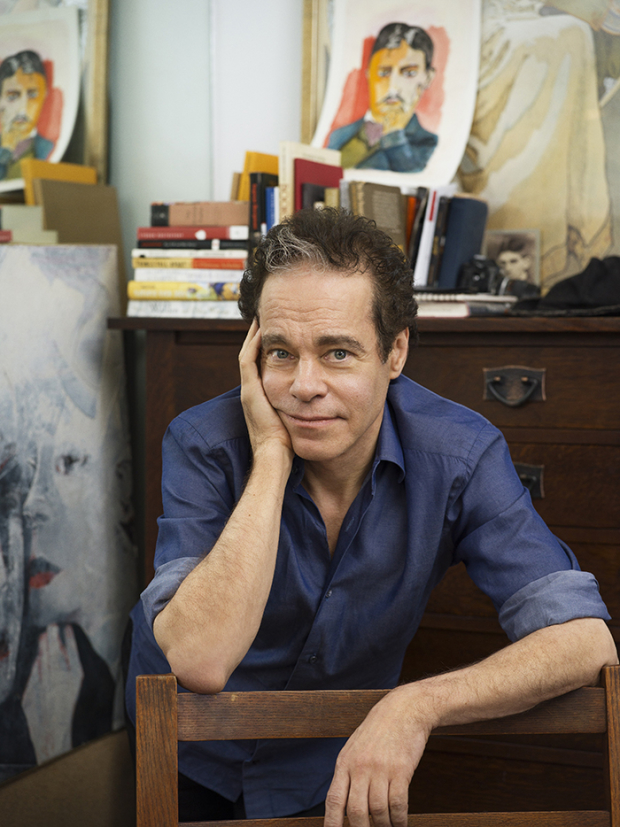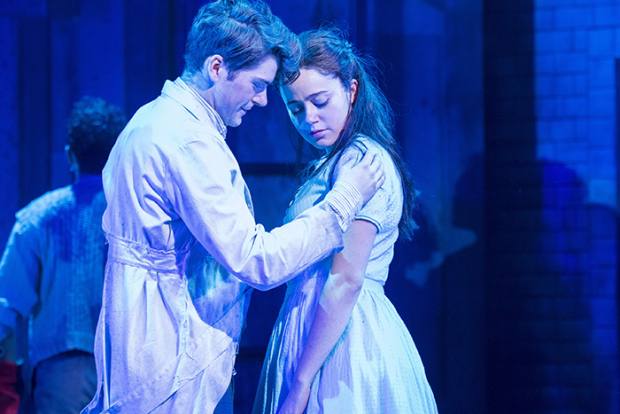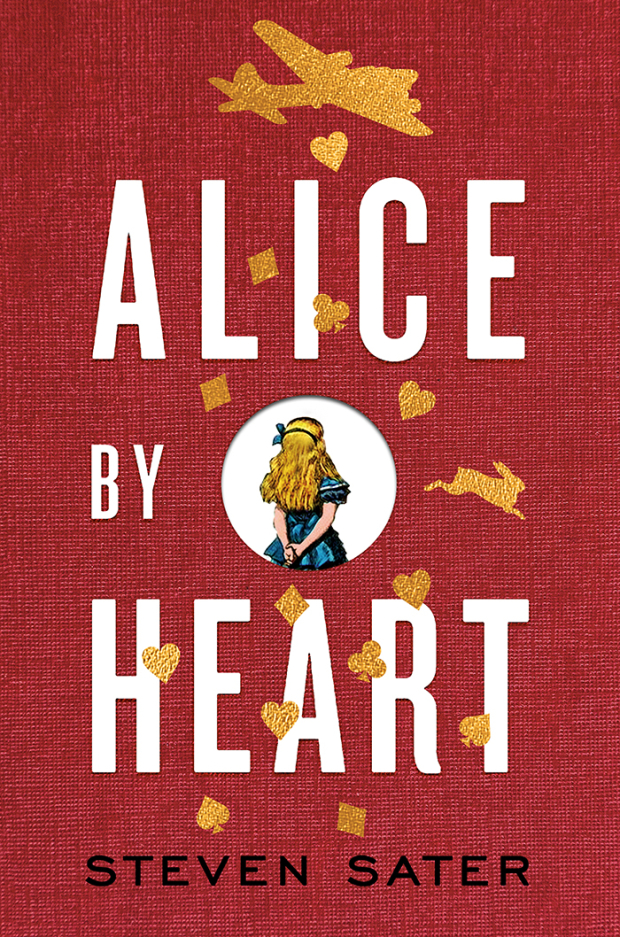Steven Sater's Alice by Heart Novel Gives Thanks to the Books That Make Us Who We Are
Sater’s Wonderland-inspired musical is now a book, as well as its own literary treasure map.
Alice by Heart opens in the antithesis of Wonderland. The story begins in a London Tube station where a group of children have taken shelter following the Blitz of World War II. The young Alice Spencer tries to sneak past the resident nurse — Alice's Adventures in Wonderland in hand — to get to her friend Alfred, who is quarantined with tuberculosis. If the two of them can dive into their favorite childhood story just once more, perhaps time can be stopped, fates can be changed, and the world can look a little more beautiful.
Though inspired by the dynamic imagination of Lewis Carroll, the musical — which had its world premiere off-Broadway at MCC just one year ago — is more a celebration of the gift a trip down the rabbit hole can give a reader than an adaptation of Carroll's fantastical stories. That is certainly what the show's lyricist Steven Sater and his fellow authors (Waitress librettist Jessie Nelson and Sater's Spring Awakening collaborator Duncan Sheik) intended for the production, and what Sater is now strengthening in the novel he has spun from that original yarn.
Sater — who in his early 20s spent months in a hospital recovering from a severe spinal injury with nothing but books to occupy his mind, body, and soul — intimately understands Alice and Alfred's urgent need for wonder and escape. A trip to Wonderland is not a frivolous fancy — it's a means of survival. So as a gift to his kindred characters, Sater has decided to send them through his novel touching bits of great works that saved his life in the hopes that it might enhance theirs…while there's still time.

(photo provided by ID Public Relations)
This interview has been edited and condensed for clarity.
Your musical Alice by Heart is inspired by Lewis Carroll's iconic Alice books. What made you decide to return the musical to book form?
The show is all about the power of a book and how a book can get you through the hardest times. Through my childhood and my early 20s when I was hospitalized for so long, books were kind of my everything. The show itself is not just a take on Alice's Adventures in Wonderland. It's about what the book means to this girl and how it allows her to go into the wonderland of her mind. So when the producer Kurt Deutsch suggested doing a book, I at first was really put off. But then something about the idea of a book about a book really got to me. It was an opportunity to create a book created of books that I had loved.
What do you mean when you say the book is "created of books" that you've loved?
The book is almost like a mosaic to me. Proust is a huge influence on this book. James Joyce, Virginia Woolf's diaries of the war — a whole history of English literature is hidden in the book. There's Beowulf, there's Chaucer, there's Keats. There's a whole memory that Alice has that's reminiscent of a passage in George Eliot's Middlemarch. Some things the aunts say in Pride and Prejudice and Sense and Sensibility I've given Dodgy to say in the book. There's a whole world of books within this book.
The story is set after the Blitz in 1940 London, and it doesn't shy away from dark themes like war and illness. Do you continue to lean into those topics in the book, and do you feel like kids appreciate the opportunity to wrestle with heavier issues?
You know, when we first worked on Spring Awakening, people would talk to me about young people being a postliterate generation. But teens were showing up at CD signings with the lyrics written up their legs. The lyrics of that show are pretty poetic. And I thought, Why have we given up on young people and their love of poetry? I think a sincere cry from our own heart can touch the heart of everyone else around us. I also don't look at the show or the book as being for children. It draws on a lot of techniques of great 20th century literature. That's what informed my view of literature, so that's the kind of book I began writing. We all want to be challenged. We all want to know all the parts of ourselves.

(© Deen van Meer)
Did you incorporate any elements of Lewis Carroll's whimsical writing style into the book?
For better or worse, it has really informed the kind of book that I wrote. There's a kind of playfulness about the language and a linguistic self-consciousness that you get from Lewis Carroll. But this book is different because it's more a story of a young woman of modern times. It's more heartfelt, it's more personal, there's more interior world. However, you do go to these fantastical places of language.
You wrote in your author's note that you want this book to be in conversation with the original Alice books. What kind of conversation do you imagine them having?
About the enduring themes of wonder and language and self. The original Alice books are about growing and about versions of ourselves. Who am I? What me am I today? These are really themes we all feel in our own lives — that we're reading the book of our life, that the person we were two years ago is a completely different self than the person we are now. Those themes are evergreen. The story of how we leave childhood behind is a thing that we've brought to Lewis Carroll: to say, How can a book like this become a part of your ongoing life? How do you own those parts of yourself and understand them in a different way? That's how I understand the conversation with those books.
There's a quote in the book that stood out to me: "In this wartorn refugee world, even the best words held so little abracadabra." Are you intentionally reaching into the present and giving a nod to today's world through this book?
One-hundred percent. I feel like we're in a dark, chaotic time of incredible divisiveness in this country, and I think that the value of facts, let alone the value of fiction, is so radically under question. We've cut arts funding from our schools, we've cut all kinds of programs for community art. The value of words and how we find the truth through fiction was really important to me. I've always felt — about our show and the book — that it was urgent and contemporary.








